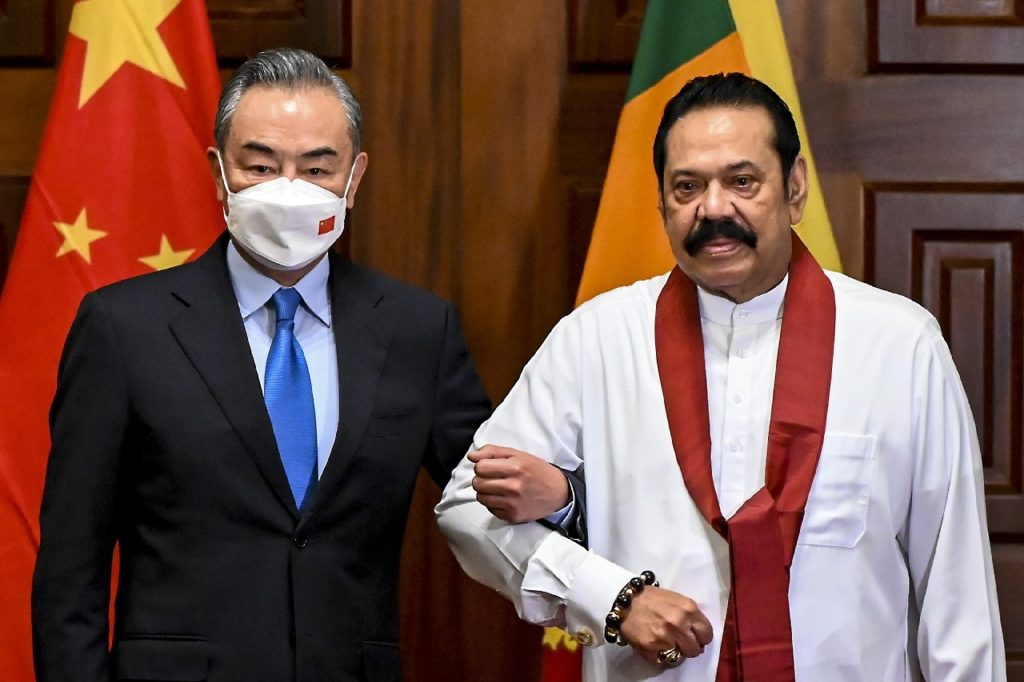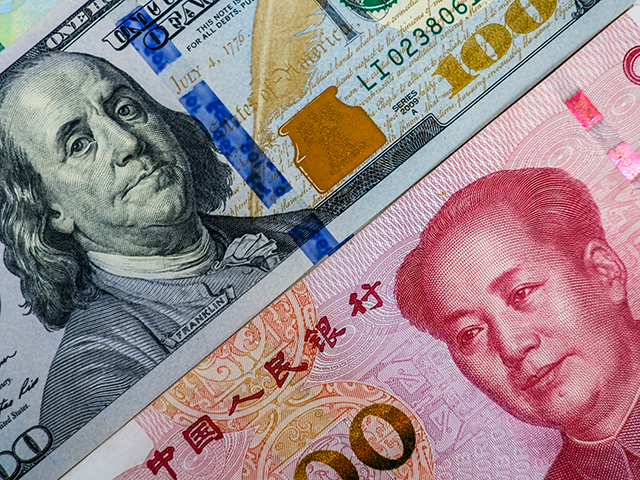China’s state-run Global Times on Tuesday denounced the strong U.S. dollar as a “crisis” for the rest of the world because it increases the “financial risks facing emerging markets” and allegedly makes it harder for other nations to implement anti-inflationary policies.
China therefore urged the world to get away from the U.S. dollar as quickly as possible.
Mixed in with the Global Times’ apocalyptic warnings about the tyranny of King Dollar was a good deal of grumbling that global bankers, including Chinese state-controlled banks, still view American currency as a “safe haven for investors seeking security amid the changeable markets.”
The Global Times overlooked China’s tense relations with India to use the Indian rupee as an example of foreign deflation techniques thwarted by the U.S. Federal Reserve’s strengthening of the dollar to a 20-year high last week:
India’s policymakers have tried a raft of measures to defend its currency, as a weaker rupee may import more inflation into the country. India’s inflation hit 7.01 percent in June, compared with 7.04 percent in May and 7.79 percent in April. But none of the measures seem to have worked to weather the impact of a stronger dollar.
India is not the only country that is facing currency depreciation pressure as a result of the Fed’s aggressive monetary policy, something the world is now vigilant about. Former US treasury secretary John Connally said in 1971, “the dollar is our currency, but it’s your problem.” What was true then remains true today. Currencies of various countries, especially emerging market economies, are buffeted by massive foreign outflows in recent months, which could be extremely dangerous to the financial stability of any country.
#GTVoice: While the greenback is indeed a safe-haven for investors seeking security amid the changeable markets, it is worth noting that an overly strong dollar is exacerbating the financial risks facing emerging markets. https://t.co/xGJoKbhUtP pic.twitter.com/p1Gz7fdsfm
— Global Times (@globaltimesnews) July 19, 2022
The Chinese Communist paper grudgingly admitted that recent reports about big U.S. debt holders such as China and Japan selling off their American holdings were a little overblown, noting that China’s hoard of U.S. securities actually grew by over $2.6 billion in May, right after headlines touted it falling below a trillion dollars for the first time in over a decade.
The Global Times professed special concern for emerging economies, which could be facing short-term debt crises it claimed would be exacerbated by the strong dollar.
“If the hawkish Fed policy continues to lure capital toward the U.S. from other markets, these markets will suffer miserably from financial turmoil. And the next Sri Lanka may be just around the corner. The world needs to remain vigilant,” the editorial concluded — an amusingly hypocritical comment given that easy Chinese loans were one of the major contributing factors to Sri Lanka’s economic meltdown.

Chinese Foreign Minister Wang Yi, left, poses for media before his meeting with Sri Lankan Prime Minister Mahinda Rajapaksa in Colombo, Sri Lanka, Sunday, January 9, 2022. (AP Photo/Eranga Jayawardena)
The whole point of China’s propagandists lamenting the strong dollar could be a bid to distract from China’s glaringly obvious role in bankrupting Sri Lanka — a cautionary tale that should have all of Beijing’s Belt and Road Initiative (BRI) clients feeling nervous. Sri Lanka is merely the most egregious, and spectacularly imploding, example of corrupt local elites eagerly grabbing China’s money to splurge on ridiculous programs and unprofitable projects, without worrying about the day those Chinese debts come due.

Demonstrators protesting against the newly elected Sri Lanka President Ranil Wickremesinghe march to the President’s Office in Colombo, Sri Lanka, on Wednesday, July 20, 2022. (Buddhika Weerasinghe/Bloomberg via Getty Images)
The Philippines just endured a hard lesson in BRI politics last week, when China suddenly abandoned three expensive and highly-touted railroad projects, leaving stunned Filipino taxpayers holding the bag for six years of debt accumulated under former President Rodrigo Duterte.
One of Duterte’s top planners, Ernesto Pernia, ruefully remarked on Wednesday that “loans from China come with strings attached,” and China always gets something valuable in exchange for its seeming benevolence.
“Having been the agnostic in the economic team about Chinese officials’ promises or seeming generosity, I would not recommend revisiting/reviewing the three railway projects with the Chinese and just drop them altogether. Much better to deal with ODA with Japan, South Korea, Australia, the U.S. and the E.U.,” Pernia remarked. ODA refers to Official Development Assistance, the Philippine government’s infrastructure program.
The Global Times’ point about strong dollars causing trouble for poor countries has been made by less self-interested analysts than the Chinese Communist Party.
Voice of America News (VOA) noted on Tuesday that strong dollars can divert investment away from developing nations, and from Europe, where “uncertainty created by the war in Ukraine” is causing jittery global investors to seek safer havens.
“We’re a reliable currency. We’re not going to expropriate people’s bank accounts,” William Reinsch of the Center for Strategic and International Studies told VOA. The day after Reinsch made this observation, Beijing dispatched tanks to keep anguished Chinese depositors from storming scandal-plagued banks to withdraw their money.
VOA noted that the strong dollar is a mixed bag for Americans, as it could provide a little short-term relief from President Joe Biden’s ruinous inflation by making imports a little cheaper, but that benefit will be limited because the currencies of Canada, Mexico, and China have not devalued much against the dollar, and they are America’s three largest trading partners.
“It’s not good for American manufacturers or anybody who exports from here, because it makes their exports more expensive. That will add to the trade deficit, which is already enormous,” Reinsch explained.
The Hill added on Wednesday that Americans traveling abroad will see the most immediate benefit from a strong dollar — while those remaining at home will pay the price for struggling manufacturers, a fluttering stock market, and jobs lost as imports become far cheaper than domestic goods.
And, of course, if the Global Times and similarly pessimistic optimists are correct that strong dollars will damage emerging economies and possibly even cause a humanitarian crisis, the United States will be expected to pay the lion’s share of foreign aid, as always.

COMMENTS
Please let us know if you're having issues with commenting.